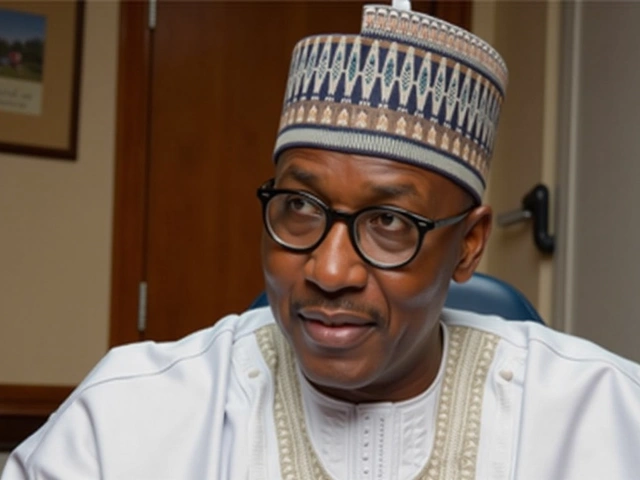NNPC Unveils Updated Petrol Price Breakdown for Dangote Refinery

NNPC Unveils New Petrol Price Breakdown for Dangote Refinery
The Nigeria National Petroleum Company Limited (NNPC) has recently updated the estimated petrol pricing breakdown obtained from the Dangote Refinery. This comes ahead of the switch from dollar-based payments to naira transactions set to commence from October 1, 2024. The NNPC is making efforts to align the pricing with the market dynamics, factoring in international gasoline prices and the prevailing foreign exchange rates, all within the framework of the Petroleum Industry Act (PIA) 2021.
Transition to Naira Transactions
Currently, the NNPC deals in US dollars for petrol offtakes from the Dangote Refinery, but the recent announcement sets a clear timeline for transitioning to local currency-based transactions. This move is significant as it coincides with broader economic strategies to strengthen the naira and reduce dependency on foreign currencies.
The change is expected to bring more transparency and predictability to the petrol pricing for consumers in Nigeria. With the NNPC assuring that any discounts obtained from the Dangote Refinery will be fully passed on to the general public, there is cautious optimism among market watchers and consumers alike.
Initial Pricing Announcements and Revisions
The NNPC's initial press statement earlier this week provided a detailed breakdown of the various fees contributing to the petrol price. These included a Nigerian Midstream and Downstream Petroleum Regulatory Authority fee of ₦8.99, an inspection fee of ₦0.97, a margin fee of ₦26.48, and a distribution fee of ₦15 per litre. However, a follow-up statement brought significant changes to these fees.
According to the revised statement, the Midstream and Downstream Petroleum Regulatory Authority fee was cut to ₦4.495. Additionally, the inspection and margin fees were completely eliminated. However, the distribution fee saw a substantial increase to ₦42.45. A new Midstream and Gas Infrastructure Fund fee of ₦4.495 was also introduced.
Location-Based Pricing
One of the most noteworthy aspects of the updated pricing structure is the location-based pricing model. The NNPC has revealed that petrol prices will vary depending on the geographic location within Nigeria. For instance, in Lagos, consumers can expect to pay around ₦950 per litre, while in more remote areas like Borno State, the price may go as high as ₦1,019 per litre.
This regional pricing strategy aims to address the logistical and distribution challenges faced in different parts of the country. While the higher prices in remote areas might come as a blow to the residents, the NNPC assures that these prices are fairly calculated and reflective of the higher costs involved in delivering petrol to these regions.
Implications for the Nigerian Economy
The updated petrol pricing from the NNPC is a significant move that reflects ongoing changes and challenges in the Nigerian economy. The scheduled shift from dollar to naira payments for petrol indicates a larger strategy to stabilize and strengthen the local currency. This move comes at a time when the country is grappling with complex economic conditions, including fluctuating oil prices and foreign exchange rates.
Petrol pricing is a critical factor impacting the everyday life of Nigerians. The NNPC's commitment to passing along discounts from the Dangote Refinery is a welcome step that could potentially ease some of the financial burdens on the citizens. However, the new fees introduced and the elimination of some previous fees will surely spark debates among policymakers, industry stakeholders, and consumers.
Conclusion
The Nigeria National Petroleum Company's announcement and subsequent revisions to the petrol pricing breakdown illustrate the dynamic nature of the country's petroleum sector. As the NNPC transitions to naira-based transactions, it will be crucial to monitor how these changes impact the broader economy and consumer sentiment. Nigerians are hopeful that the new pricing model, coupled with the promised discounts, will provide some relief amid the current economic challenges.
The location-based pricing brings its own set of challenges and benefits. While it aims to address the specific needs of different regions, it also highlights the disparities and logistical issues within the country. As these changes take effect, it's essential to closely observe how they influence not just the petrol market, but the overall economic landscape of Nigeria.






SAI JENA
September 17, 2024 AT 21:06It’s encouraging to see the NNPC taking proactive steps toward a more transparent pricing structure, especially with the upcoming naira‑based transactions. Aligning fees with actual distribution costs can build consumer confidence and help stabilize the market. The reduction in regulatory fees shows a willingness to adapt, and the promised pass‑through of refinery discounts should ease some pressure on households.
Donny Evason
September 18, 2024 AT 11:00The shift to local currency is a bold move that challenges the entrenched dollar dependence in Nigeria’s fuel sector. By reconfiguring the fee architecture, the NNPC is not just tweaking numbers but reshaping the economic narrative around energy sovereignty. One must consider how regional price variation reflects deeper infrastructural inequities, yet it also incentivizes logistical innovation. Ultimately, this policy could serve as a catalyst for broader fiscal reform.
Hariom Kumar
September 19, 2024 AT 00:53Great move! 😊
Phillip Cullinane
September 19, 2024 AT 14:46The revised breakdown, when examined through a macro‑economic lens, reveals a complex interplay of tariff reallocation and distribution cost amortization that warrants granular analysis. By excising the inspection and margin fees, the NNPC ostensibly reduces administrative overhead, yet the concomitant increase in the distribution fee to ₦42.45 per litre suggests a strategic re‑channeling of cost burdens toward logistical endpoints. This realignment aligns with the Petroleum Industry Act’s mandate to enhance price transparency while simultaneously embedding supply‑chain resilience metrics. Moreover, the introduction of the Midstream and Gas Infrastructure Fund fee at ₦4.495 per litre represents a forward‑looking investment in upstream infrastructure, potentially mitigating future bottlenecks. From a fiscal policy standpoint, the transition to naira transactions could attenuate foreign exchange volatility, thereby stabilizing fiscal balances and curbing inflationary pressures linked to imported fuel components. Nevertheless, the geographic price dispersion-from ₦950 in Lagos to ₦1,019 in Borno-highlights systemic disparities in transportation logistics, fuel storage capacities, and market access, which may necessitate supplementary subsidies or targeted fiscal interventions. In operational terms, distributors will need to recalibrate pricing algorithms to accommodate these region‑specific cost differentials, implying a need for robust data analytics platforms. Stakeholders should also monitor the pass‑through efficiency of any refinery discounts, as the marginal benefit to end‑consumers will be contingent upon the fidelity of cost accounting practices. Finally, the overarching objective of bolstering the naira through local currency settlements dovetails with broader monetary policy goals, yet its success will depend on sustained political will, regulatory coherence, and the adaptability of market participants to these structural reforms.
Janie Siernos
September 20, 2024 AT 04:40While the intent to lower costs appears noble, the moral responsibility lies in ensuring equity across all regions, not merely celebrating headline numbers. The disparity in pricing must be justified with transparent accounting, lest it become a veneer for systemic neglect.
joy mukherjee
September 20, 2024 AT 18:33It’s good to see concrete steps toward pricing transparency, and the regional adjustments make sense given the logistical challenges on the ground. However, we should keep an eye on how effectively the promised discounts actually reach consumers, especially in remote areas. A balanced approach that supports both market efficiency and social equity will be key 😊.